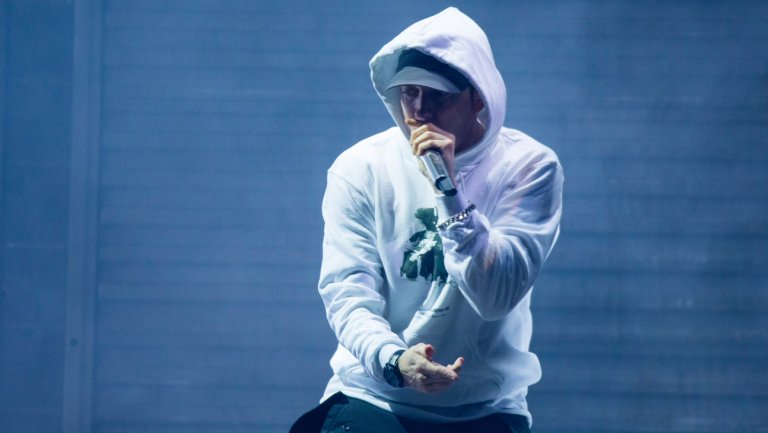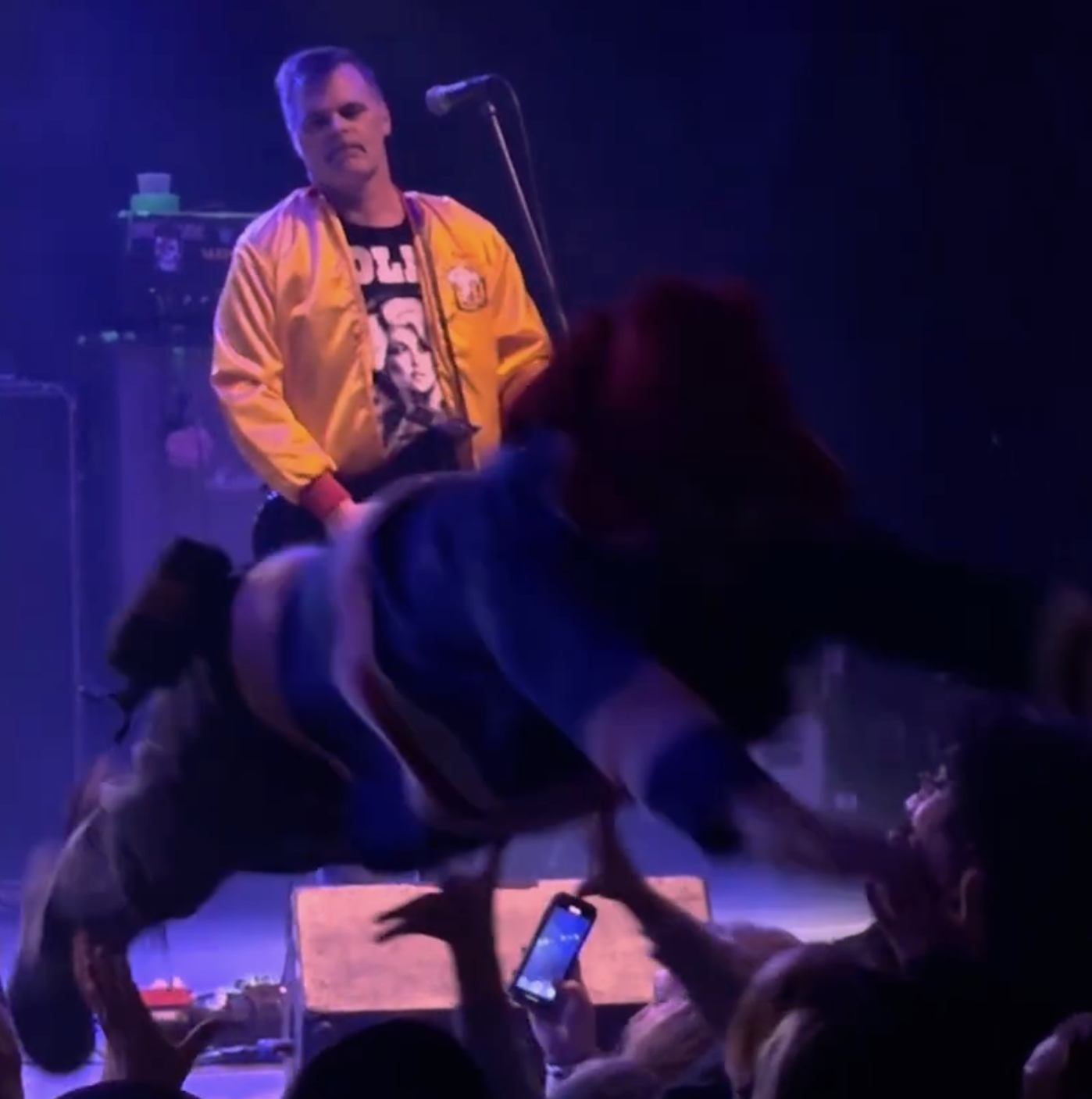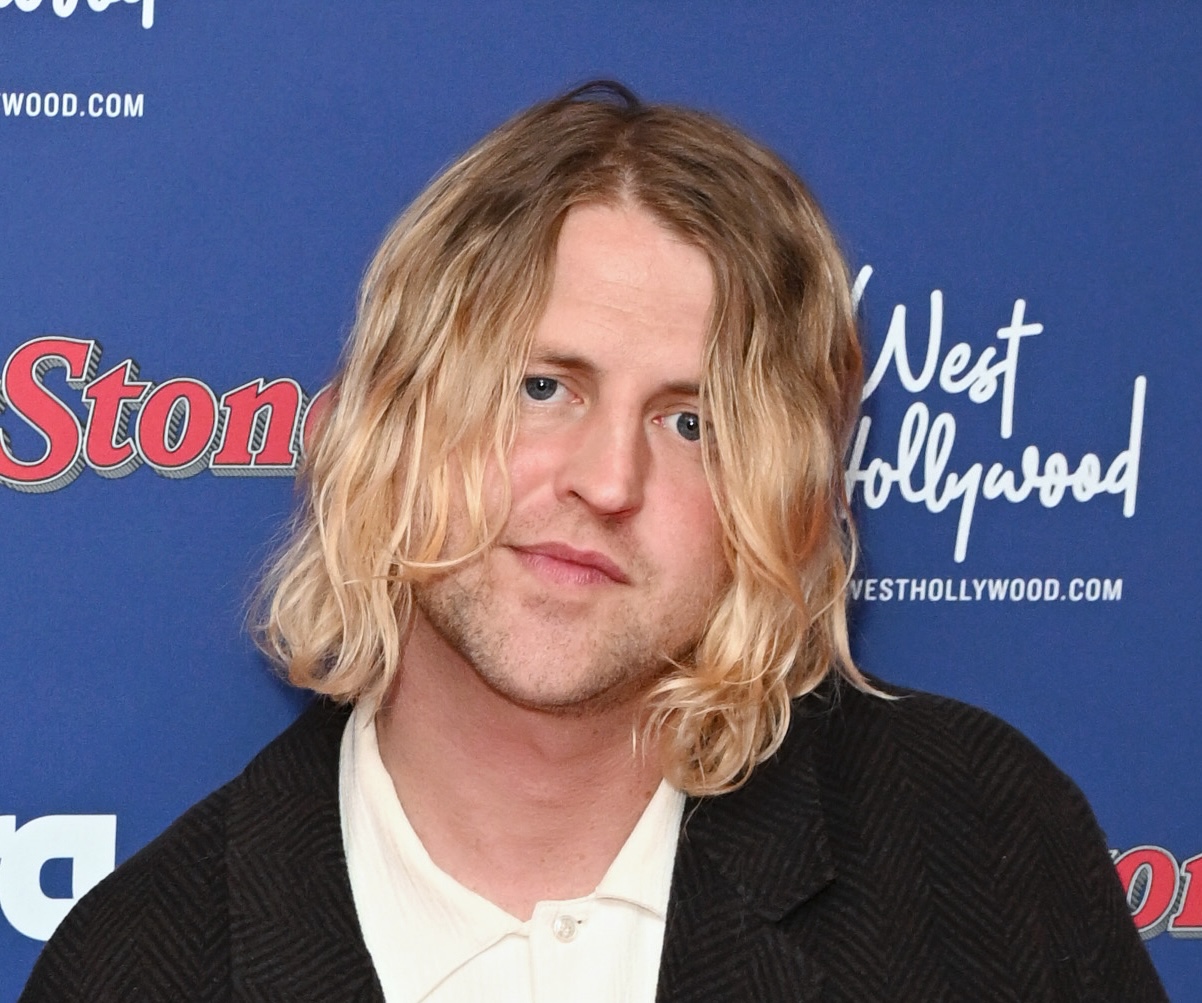Eminem's publisher Eight Mile Style has filed a major new lawsuit claiming Spotify has infringed hundreds of song copyrights and challenging the constitutionality of a recently passed music licensing law.
In a suit filed Wednesday in federal court in Nashville, Eight Mile accuses Spotify of willful copyright infringement by reproducing "Lose Yourself" and about 250 of the rapper's songs on its service to the tune of potentially billions of dollars in alleged damages. The suit also targets the Music Modernization Act, a federal law enacted last October that was intended to make life easier for tech companies and to get songwriters paid. The suit accuses Spotify, the $26 billion Stockholm-based streaming behemoth, of not living up to its obligations under the MMA, while also making a frontal attack on one of the few legislative accomplishments during the Donald Trump presidency.
According to the complaint, a copy of which was obtained by The Hollywood Reporter, Spotify has no license for Eminem's compositions, and despite streaming these works billions of times, "Spotify has not accounted to Eight Mile or paid Eight Mile for these streams but instead remitted random payments of some sort, which only purport to account for a fraction of those streams."
The suit adds that Spotify has placed "Lose Yourself" into a category called "Copyright Control," reserved for songs for which the owner is not known. Eight Mile attacks the "absurd" notion that it can't be identified as the owner of such an iconic song, which was the centerpiece of the 2002 film 8 Mile, hit No. 1 on the Billboard Hot 100 and won an Oscar for best original song. According to chart data, Eminem is among the most followed artists on Spotify with monthly listens on par with Bruno Mars, Coldplay and Taylor Swift.
Eight Mile is being represented by Richard Busch, a Nashville attorney whose appearance in this matter is notable. A decade ago, he handled a trailblazing case on behalf of the company that produced Eminem's early work. That dispute against Universal Music Group explored whether digital downloads should be treated as "licenses" or "sales" — a meaningful accounting difference that changed the economics of distributing music in the iTunes era. More recently, besides famously representing Marvin Gaye's family in its successful copyright suit over "Blurred Lines," Busch took on Spotify in a pair of cases that alleged rampant infringement. Those recently settled cases may have played some role in the passage of the Music Modernization Act by convincing Spotify and other music distributors to come to the negotiating table for new legislation.
Before the Music Modernization Act, a persistent problem for those digitally distributing music was identifying and locating the co-authors of tens of millions of copyrighted musical works. Under copyright law, Spotify could obtain a compulsory license for its mechanical reproduction of a song, but it needed to send out a "notice of intention" and make required payments. Spotify, like others, works with the Harry Fox Agency to comply, but past class action lawsuits alleged Spotify had fallen short on efforts.
The new law was meant to alleviate the difficulty of "matching" songs with their owners through a database run by a Mechanical Licensing Collective, which will grant blanket licenses beginning in 2021. At a signing ceremony, Trump was flanked by such musicians as Kid Rock and John Rich, and he talked how the new law is good for the music community. "I've been reading about this for many years and never thought I'd be involved in it, but I got involved in it," said Trump. "They were treated very unfairly. They're not going to be treated unfairly anymore."
The Music Modernization Act was hailed by both song publishers ("We are humbled by the extraordinary progress propelled by compromise," said National Music Publishers Assn. president David Israelite at the time) as well as the Digital Media Association, the lobbying voice of the streaming industry. "The MMA will benefit the music community and create a more transparent and streamlined approach to music licensing and payment for artists," said Horacio Gutierrez, Spotify's general counsel and vp business and legal affairs, upon the law's enactment.
Streamers may have thought their copyright troubles were ending, but that sentiment might have been both optimistic and premature.
Eight Mile now alleges Spotify's attempts to serve notices of intent for Eminem's music are "untimely and ineffective" and that the streamer can't demonstrate compliance with the Music Modernization Act.
"First, by its terms, the MMA liability limitation section only applies to compositions for which the copyright owner was not known, and to previously unmatched works (compositions not previously matched with sound recordings), and not to 'matched' works for which the DMP [Digital Music Provider] knew who the copyright owner was and just committed copyright infringement," states the complaint.
In other words, Eight Mile asserts that Spotify knew exactly who owned these Eminem songs, and even if it didn't, Spotify "did not engage in the required commercially reasonable efforts to match sound recordings with the Eight Mile Compositions as required by the MMA."
Spotify will surely have its own interpretation of the Music Modernization Act once it files its court papers. THR reached out for comment on the suit.
In a security filing earlier this year, the company discussed how between October 2018 and Dec. 31, 2020, the mechanism for obtaining a compulsory license was no longer operative and there was "risk" in situations where it had no direct license and couldn't locate the owner of a composition. Additionally, Spotify warned that the Music Modernization Act, when fully implemented, could actually increase the cost and difficulty of obtaining licenses, especially upon any delay in adoption of new regulations.
Eminem's publisher is doing more than merely questioning Spotify's compliance with copyright law. The lawsuit also makes a pretty bold argument regarding a new law's constitutionality.
The Music Modernization Act held out a carrot for streamers in the form of essentially a blank slate for past copyright infringement. Those who didn't sue by the end of last year were out of luck (which explains why Tom Petty's publisher Wixen filed a since-settled case against Spotify on New Year's Eve).
But as Eight Mile contends, the attempt to retroactively wipe out a copyright holder's ability to recover profits, statutory damages and attorneys fees amounts to "an unconstitutional taking of Eight Mile’s vested property right," basically meaning the Music Modernization Act is allegedly in violation of the Takings Clause of the Fifth Amendment.
Spotify and others participating in the tech industry's lobbying efforts "knew what they were doing," asserts the Eight Mile complaint. "Given the penny rate for streaming paid to songwriters, the elimination of the combination of profits attributable to infringement, statutory damages and attorneys’ fees would essentially eliminate any copyright infringement case as it would make the filing of any such action cost prohibitive, and ensure that any plaintiff would spend more pursuing the action then their recovery would be. In addition, with the removal of these remedies, it cleared the last hurdle for Spotify to go public, thereby reaping its equity owner’s tens of billions of dollars. The unconstitutional taking of Eight Mile’s and others vested property right was not for public use but instead for the private gain of private companies."
The application of the Takings Clause to copyright reform is, in the words of a 2015 article in the Harvard Law Review, "largely unexplored" territory, with scholars at times having "expressed concern that applying Takings Clause scrutiny to intellectual property might inhibit legal change."
The issue of an unconstitutional taking did come up during the legislative process, though it was mostly geared towards discussion of a different aspect of the Music Modernization Act — treatment of pre-1972 recordings, which have now become eligible for digital royalties.
The lawsuit from Eminem's publisher is now set to put tough issues before a court.
As relief for alleged copyright infringement, Eight Mile seeks Spotify's substantial profits, which the complaint painstakingly attempts to attribute to sweeping copyright theft of songs like "Lose Yourself." (Universal, Sony, and Warner Music own big equity stakes in Spotify.) If the plaintiff runs into trouble demonstrating how Spotify has benefited from failing to secure licenses, the lawsuit seeks in the alternative the maximum amount of statutory damages — $150,000 for each of the 243 works at issue, which computes to $36.45 million. The lawsuit also seeks a judicial declaration that Spotify does not qualify for limitation from damages under the Music Modernization Act as well as a second declaration that the law's retroactive elimination of damages available for copyright infringement is unconstitutional.
This article originally appeared on The Hollywood Reporter.






